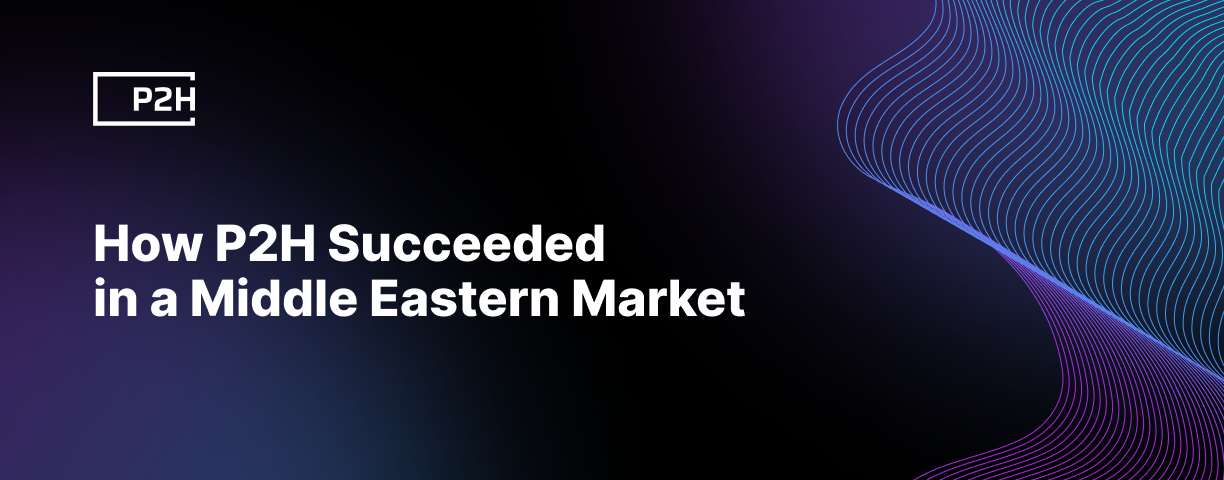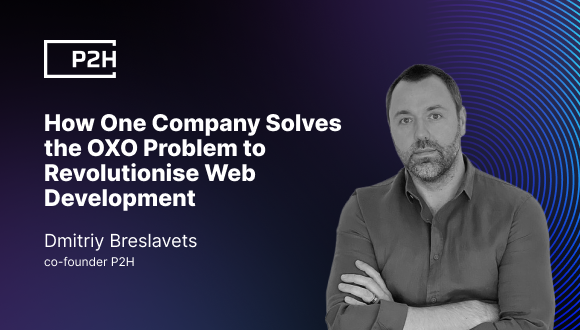
Few Ukrainian IT businesses consider expanding into Middle Eastern markets. Instead, they focus on westward growth. Meanwhile, the Middle East is rapidly developing as a robust consumer market for digital businesses. Recently, P2H Inc., an international technology company with Ukrainian roots, established a branch office in the Kingdom of Saudi Arabia.
P2H has operated in the technology industry for about 18 years in total. For ten years, the company’s core service was converting HTML and CSS web page design into a stand-alone service, being among the first to offer it back at that time.
Since 2015, P2H has actively participated in the digital transformation of the public sector, with one of our primary government client based in the Middle East. P2H has already implemented over 400 web and mobile solutions for that market, which go beyond mere digitalization and bring practical benefits to residents of an entire state.
The path to Middle Eastern clients
“We met clients from Saudi Arabia who had already assigned their project to another contractor using PHP technology. The client approached us with a problem none of the involved companies could handle. P2H experts found a solution, but we used Ruby instead of PHP. As a result, we won the contract for the entire project. And that was just the beginning,” said Mykhailo Zakharov, Custom Division Director at P2H.
Thus, P2H created a small team that specialized in digitalizing public services. Over seven years of collaboration in the Middle East, the number of teams working on “digital state” projects grew to twenty-five. Those P2H teams continue to focus on creating a large-scale e-government system that serves many of the governmental functions in one of the Middle Eastern states.
“Our first project for an Eastern client was a digital platform that regularizes expat rights. After a successful launch, it was decided to expand the scope of the platform. The platform now supports all business processes and labor relations in Saudi Arabia,” Mykhailo shares.
Ultimately, P2H’s platform became the country’s number one paperless solution. Up to 1.5 million users can access integrated state registers and hundreds of e-services, including applying for visas, certification and licensing, employee-employer relations, business permit applications, and more.
Technological challenges we met
“Imagine a facade without building — this is the situation the P2H team faced when we received our first project in the Middle East,” Mykhailo Zakharov explains. The platform already had a design, but it wasn’t functional. We had to build the architecture and all the processes from scratch to create a solid foundation for the system and effective collaboration with the client in the future.”
A public service platform is a long-term, multi-level project with occasional urgent needs, like addressing a security breach, and always with shifting priorities, like installing new features and updates to existing functions. It’s always a marathon with interspersed sprints.
P2H experts developed the platform’s core and remained the sole vendor responsible for the platform’s critical “under the hood” functionality. More than ten P2H teams worked on developing and integrating various services to this platform. Each service serves a specific purpose, such as visa issuance, work permit issuance and renewal, or changing occupations.
“Working on a project in the public sector requires deep knowledge of public administration and the flexibility to cater to clients’ needs. Complying with legal and business frameworks while thinking creatively about technological implementation is critical. In addition, we had to develop our own project management strategy to deal with tight deadlines and a long chain of agreements between all stakeholders ,” says Mykhailo.
Technical integration with state registries and services was among the most challenging tasks. P2H specialists had to work with existing services and databases that were either outdated or still under development. Meanwhile, the client set an ambitious goal of creating in the shortest possible time a reliable and affordable solution that could handle up to 100,000 requests per hour to ensure flawless platform performance for end users.
Cultural features and differences
Cultural features are so important in building relations with our Eastern clients. This year, Ramadan, the holy month for Muslims, begins on March 22. Saudis test their faith during this time: They observe strict fasting, spend more time reading the Quran, and perform good deeds, such as making charitable donations.
P2H developed a large-scale social project for the client — a platform for collecting digital donations. This tool became especially relevant during the pandemic, which led to restrictions on visiting mosques. Digital donations have become a lifeline for the country’s residents since Islam considers voluntary almsgiving an essential duty of piety. So far, about 6.5 million Saudis have already used the platform to process donations, with a total value of approximately €170 million.
According to our team, personal meetings with a traditional request for coffee and frank communication were keys to effective interaction with our Middle Eastern clients. Forging these personal connections allowed us to become a long-term partner in the Middle East.
“Client visits, understanding the culture, and transparent communication have helped us develop effective relationships over the years,” said Mykhailo Zakharov.
P2H’s Plans for the Future
P2H has seven years of e-government experience in Saudi Arabia. But our specialists aren’t limiting themselves to Middle Eastern countries — some European countries also have quite an acute need for digitalization.


